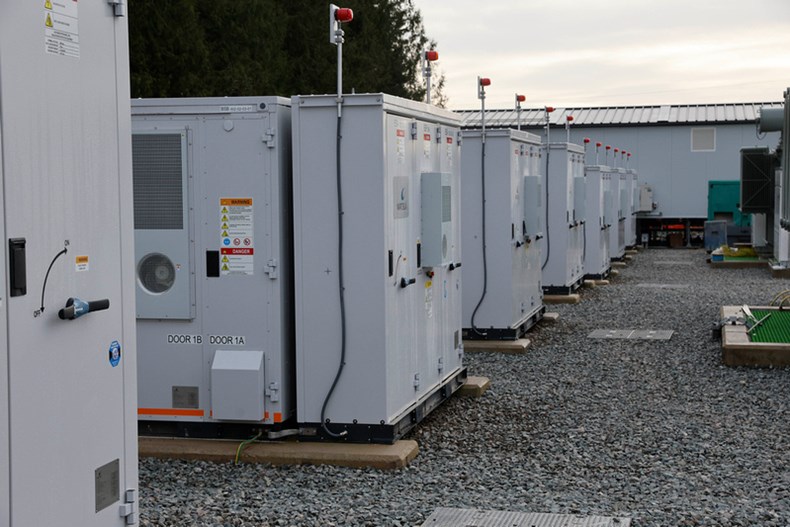
Energy consultancy Cornwall Insight has forecast that short-to-medium duration battery storage capacity on Ireland’s single electricity market (SEM) will increase fivefold by 2030.
Cornwall Insight’s SEM Benchmark Power Curve sees “significant battery storage growth”, projecting that short-medium term lithium-ion battery storage capacity, up to 4h duration, will reach 13.5GWh by 2030, up from 2.7GWh in 2025.
Under the consultancy’s forecast, batteries would be able to discharge up to 5GW at any given time in 2030.
Principal consultant at Cornwall Insight, Lisa Foley, said the forecasted rise in battery capacity shows that the Irish government’s battery framework “is certainly doing its job”.
Still, concerns remain around whether both Northern Ireland and Ireland will meet their respective targets for 80% electricity to come from renewables by 2030. Foley continued: “Batteries are only one part of the decarbonisation pie. While renewable technologies are growing, they are unfortunately not keeping up with the levels needed to reach the 2030 renewable generation goals.
“Swift action on planning and policy improvements is needed to unlock the full potential of our renewable resources and keep pace with our climate goals.”
Data from Irish grid operator EirGrid shows that renewable sources provided 40.4% of Ireland’s total electricity demand during October. Grid-scale solar generated 52GWh electricity, well above the 32GWh of October 2023 and accounting for 1.8% of electricity in October. Diarmaid Gillespie, director of system operations at EirGrid, pointed out that “as recently as 2022”, Ireland had no solar on the transmission system at all.
Eirgrid is responsible for the grid in Northern Ireland too via a separate, independent entity, and these figures only refer to the Republic of Ireland.
Solar Media market research shows the total operational energy storage capacity in Ireland is over 700MWh, with 36MWh coming from storage capacity co-located with solar sites. The storage co-located with solar market has a pipeline of 1.5GW/2.4GWh, which is steadily increasing.
Still, although the firm’s outlook on short-medium term battery storage is positive, Cornwall Insight has warned that a ‘policy vacuum’ for long-duration energy storage (LDES) in the country threatens Ireland’s renewables potential. LDES is seen as key to balancing the grid’s growing renewable generation, like wind, over multiple days rather than just hours once their share of loads hits a critical mass. As such, the technology is seen as a crucial component of net zero.

